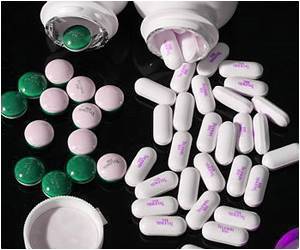Drug shortages remain a serious problem for patient safety, according to newly published results from a survey of pharmacy directors.

The survey was conducted by Northwestern Medicine® researchers in partnership with MedAssets, as part of the MedAssets Pharmacy Coalition to better understand how drug shortages affect patient outcomes. The survey asked pharmacy directors from a variety of health care settings to supply information on drug shortage related patient complaints, adverse events, medication errors, patient outcomes, demographics and institutional costs. The survey's findings were detailed in, "Effects on Patient Care Caused by Drug Shortages: A Survey," a research article published in the November/December issue of the Journal of Managed Care Pharmacy (JMCP).
"Drug shortages are the first thing I think about when I get up in the morning and it is the last thing on my mind when I go to bed at night," said Gary Fennessy, MBA, vice president of Operations for Northwestern Memorial HealthCare and co-author of the JMCP article. "This is not a problem that is going to go away on its own. Healthcare leaders must not lose sight of it as a major contributor to patient harm or consider its adverse effects inevitable."
In 2009, the American Society of Health-System Pharmacists put drug shortage management guidelines in place for health care providers to try and minimize negative impacts patient care, and in 2011, following an Executive Order from President Barak Obama on reducing drug shortages, the U.S. Food and Drug Administration (FDA) increased its efforts to prevent and resolve drugs shortages. While the FDA recently reported that the number of new shortages in 2012 was down to 117, from 251 in 2011, drug shortages are still having a major impact on patient care.
A common practice to help mitigate the problems caused by a drug shortage is to use an alternative medication when possible. Even when alternate medication can be used, there can be many unintended consequences and additional side effects. In general, drug shortages have been known to cause, or contribute to a variety of issues, which were also represented in the newly published survey responses including:
- Medication errors (such as wrong dose, wrong drug, wrong frequency),
- Increased institutional costs,
- Cancelled care, and
- Delayed treatment.
"This survey is the first that we are aware of to describe the effects that drug shortages have on patient complaints," said Despina Kotis, PharmD, director of pharmacy at Northwestern Memorial HealthCare and co-author of the JMCP article. "It clearly shows that patients are aware these shortages are happening and they are upset that their care is being adversely affected by them."
Advertisement
Source-Eurekalert










